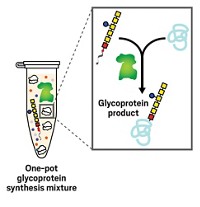Advertisement
Grab your lab coat. Let's get started
Welcome!
Welcome!
Create an account below to get 6 C&EN articles per month, receive newsletters and more - all free.
It seems this is your first time logging in online. Please enter the following information to continue.
As an ACS member you automatically get access to this site. All we need is few more details to create your reading experience.
Not you? Sign in with a different account.
Not you? Sign in with a different account.
ERROR 1
ERROR 1
ERROR 2
ERROR 2
ERROR 2
ERROR 2
ERROR 2
Password and Confirm password must match.
If you have an ACS member number, please enter it here so we can link this account to your membership. (optional)
ERROR 2
ACS values your privacy. By submitting your information, you are gaining access to C&EN and subscribing to our weekly newsletter. We use the information you provide to make your reading experience better, and we will never sell your data to third party members.
Materials
Bacteria Template Their Own Cell-Binding Polymers
by Celia Henry Arnaud
May 19, 2014
| A version of this story appeared in
Volume 92, Issue 20
Materials that selectively bind bacteria can be useful tools for detecting pathogens. But developing such materials inexpensively for a range of targets can be a challenge. Cameron Alexander, Klaus Winzer, and Giuseppe Mantovani of the University of Nottingham, in England, and coworkers simplified the process by letting bacteria do the work of templating and synthesizing their own cell-binding polymers (Nat. Mater. 2014, DOI: 10.1038/nmat3949). The researchers mix bacteria with a soup of monomers, which bind to cells in patterns determined by native molecules already on the cell surface. The bacteria naturally produce catalytically active copper that then promotes polymerization of the bound monomers. The templated polymers, which differ from polymers formed in bulk solution, are removed from the bacteria by centrifugation. When the templated polymers are introduced to a bacteria-laden sample, they preferentially bind the types of bacteria used to template them and induce formation of large cell clusters. Such aggregation doesn’t occur with the nontemplating bacteria. The researchers further harnessed the bacteria’s copper metabolism to catalyze attachment of fluorescent markers to templated polymers on cell surfaces. The fluorescent labels could thus be used to quickly detect pathogens in diagnostic tests, the researchers suggest.




Join the conversation
Contact the reporter
Submit a Letter to the Editor for publication
Engage with us on Twitter